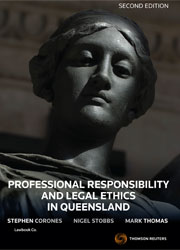Navigating the Complexities of Lawyer Ethics: A Guide to Professional Responsibility

Lawyer ethics is a multifaceted and crucial aspect of the legal profession. It encompasses the moral principles, rules of conduct, and professional standards that govern the behavior of lawyers towards clients, the court, other lawyers, and the public. Adhering to these ethical guidelines is essential not only for maintaining the integrity of the legal system but also for safeguarding the interests of justice and upholding the trust placed in lawyers.
This article delves into the intricacies of lawyer ethics, exploring key concepts, common ethical dilemmas, and the mechanisms in place to ensure ethical conduct within the legal profession.
1. The Foundation of Lawyer Ethics: Core Principles
At the heart of lawyer ethics lie several fundamental principles that serve as guiding lights for ethical decision-making:
-
Loyalty: A lawyer must prioritize their client’s interests above their own and avoid any conflicts of interest that could compromise this duty.
-
Confidentiality: Lawyers are bound by strict confidentiality obligations, meaning they cannot disclose any information shared by their clients except in specific legal circumstances.
-
Competence: Lawyers are expected to possess the necessary legal knowledge, skill, and experience to effectively represent their clients. They should keep abreast of legal developments and seek assistance when dealing with areas outside their expertise.

Candor: Lawyers must be truthful and transparent in all their dealings with the court, opposing counsel, and clients. This includes disclosing relevant information, avoiding misleading statements, and accurately representing the law.
-
Fairness: Lawyers are obligated to treat all parties involved in a legal matter fairly and with respect, regardless of their stance or personal beliefs.

2. Ethical Dilemmas: Navigating Gray Areas
The application of lawyer ethics principles can sometimes be complex and lead to ethical dilemmas. Lawyers often face situations where different ethical considerations come into conflict, demanding careful analysis and judgment. Here are some common ethical dilemmas lawyers encounter:
-
Conflicts of Interest: A lawyer may represent multiple clients with potentially conflicting interests. This requires careful assessment to ensure that representing one client does not compromise the lawyer’s duty to another.
-
Confidentiality vs. Public Interest: In certain cases, lawyers may learn of information that could prevent harm to others, potentially violating client confidentiality. Lawyers must weigh their duty to their client against their ethical obligation to protect the public.
-
Candor and Advocacy: Lawyers have a duty to zealously advocate for their clients while also maintaining candor with the court. This can be challenging when presenting a case that involves questionable facts or legal arguments.
-
Advertising and Solicitation: Lawyers must balance their right to advertise their services with ethical considerations regarding solicitation and client protection.
3. Rules of Professional Conduct: Providing Guidance
To address the complexities of lawyer ethics, legal jurisdictions worldwide have established comprehensive rules of professional conduct. These rules provide specific guidance on ethical obligations, addressing various scenarios and potential conflicts.
The American Bar Association (ABA) Model Rules of Professional Conduct, for instance, offer detailed ethical guidelines that have been adopted, with modifications, by most U.S. states.
4. Disciplinary Mechanisms: Ensuring Accountability
Legal systems have established disciplinary mechanisms to ensure that lawyers adhere to lawyer ethics. These mechanisms typically involve:
- Bar Associations: Bar associations are professional organizations for lawyers that oversee their members’ conduct. They investigate allegations of ethical violations and may impose sanctions, such as reprimands, suspensions, or disbarment.
- Judicial Discipline: In some cases, judges may also address ethical violations by lawyers through court procedures. This may involve sanctions or referrals to disciplinary bodies.
5. Promoting Ethical Culture: Fostering Integrity
Building a culture of lawyer ethics requires ongoing efforts and a commitment to ethical principles at all levels of the legal profession. Some key strategies include:
-
Legal Education: Law schools play a crucial role in instilling ethical values and providing comprehensive training on lawyer ethics.
-
Continuing Legal Education: Mandatory continuing legal education courses can help lawyers stay informed about evolving ethical standards and best practices.
-
Mentorship Programs: Experienced lawyers can guide and mentor younger lawyers, providing practical insights and ethical guidance.
-
Ethical Decision-Making Resources: Providing lawyers with access to resources and tools that facilitate ethical decision-making can be invaluable.
6. Technology and Lawyer Ethics: Navigating New Challenges
The rapid advancement of technology presents both opportunities and challenges for lawyer ethics. Lawyers must navigate new ethical considerations related to:
-
Data Security and Confidentiality: Protecting client data in the digital age is paramount. Lawyers must implement robust cybersecurity measures and adhere to data privacy regulations.
-
Artificial Intelligence (AI): The increasing use of AI in legal practice raises questions about lawyer responsibility, transparency, and bias in algorithms.
-
Social Media: Lawyers must be mindful of their online conduct and avoid engaging in unprofessional or unethical behavior on social media platforms.
7. The Importance of Public Trust: Upholding the Integrity of the Profession
Lawyer ethics is not merely a set of rules but a fundamental expression of the public trust placed in the legal profession. When lawyers uphold ethical principles, they contribute to a fair and just legal system. Conversely, ethical violations erode public trust and undermine the integrity of the entire legal profession.
In conclusion, navigating the complexities of lawyer ethics is an ongoing challenge for legal professionals. By understanding the core principles, recognizing potential ethical dilemmas, adhering to professional rules, and embracing ongoing education and reflection, lawyers can fulfill their ethical responsibilities and contribute to a more just and equitable legal system.

